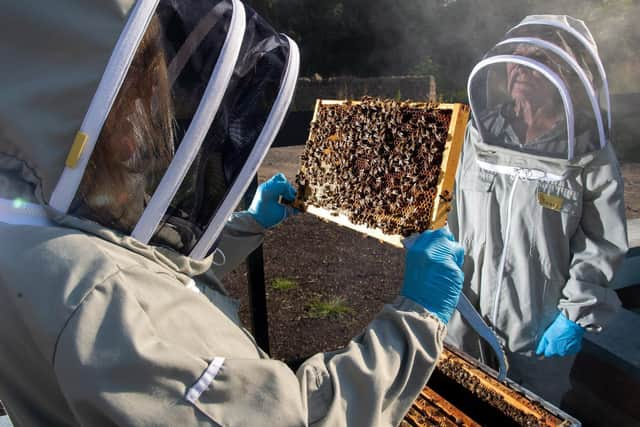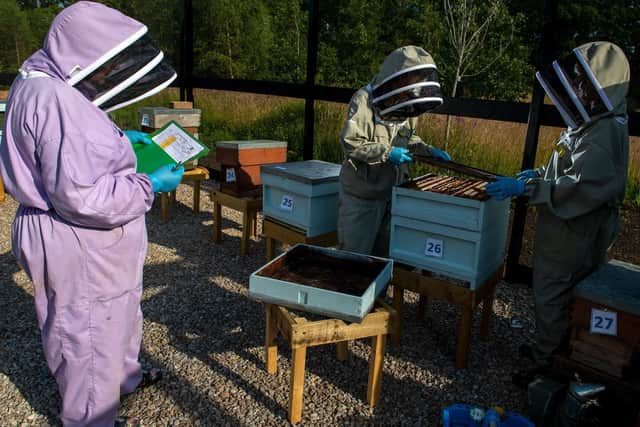How Yorkshire's bee population is surviving thanks to hardy volunteers
Environmental groups and researchers have raised concerns about stark declines in bee populations in recent years, and Friends of the Earth says the UK has lost 13 species of bee since 1900, and another 35 are threatened with extinction.
While provisional figures published by the National Bee Unit show there were 260,268 colonies in the UK in March 2021, down from 263,896 the previous year.
Advertisement
Hide AdAdvertisement
Hide AdBut experienced beekeepers across Yorkshire insist their honey bees are thriving and a growing number of people are keen to take on their own colonies. Chriss Line, chairman of Selby and District Beekeepers Association (BKA), said he has seen a notable increase in swarming this year – a process where the queen leaves the hive with some bees to find a new home – and this shows they are “self replicating”.


“We’ve also started a new association in Selby, we’ve got about 50 new beekeepers in the area now and they’re all getting their own bees and setting up hives,” he said.
“That is not a decline, that is bringing more bees into the area and into the ecology.”
The new keepers are taught how to keep a hive and alerted to the threat of the Asian hornet, as well as a parasitic mite called Varroa destructor, the bacterial disease European Foulbrood, and the rarer but serious disease American Foulbrood.
Advertisement
Hide AdAdvertisement
Hide AdThere are also growing concerns about honey bees from being imported from European Union countries via Northern Ireland, as this can result in colony-destroying small hive beetles being inadvertently brought in. However, beekeepers claim the weather continues to have the biggest impact on their colonies.


Richard Bond, chairman of the Harrogate and Ripon BKA, said after an “appalling month” in May, when cold and wet weather kept the flowers from blooming and diluted nectar, the local bees are now “doing really well”.
“Honey bees have got some help, they’ve got beekeepers, and we can feed them if the weather’s bad, we can get him through bad winters and we can provide accommodation,” he said.
“But humans need to concentrate on helping a lot more of the other pollinators.”
Advertisement
Hide AdAdvertisement
Hide AdHe backed this month’s Bees’ Needs Week – a Government initiative to educate about the vital role these pollinators play in food production and urges them to provide them with food and a home.
The Government has called on people to grow more flowers, shrubs and trees, let their garden grow wild, cut their grass less frequently and refrain from disturbing insect nests and using pesticides.